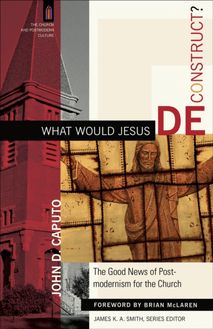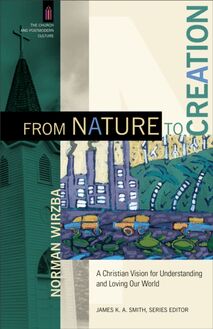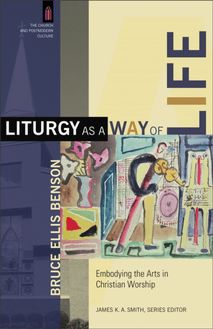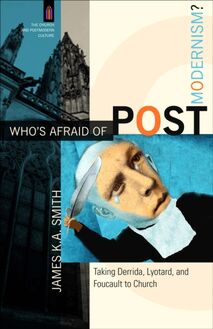Who's Afraid of Relativism? (The Church and Postmodern Culture) , livre ebook
115
pages
English
Ebooks
2014
Vous pourrez modifier la taille du texte de cet ouvrage
Obtenez un accès à la bibliothèque pour le consulter en ligne En savoir plus
Découvre YouScribe et accède à tout notre catalogue !
Découvre YouScribe et accède à tout notre catalogue !
115
pages
English
Ebooks
2014
Vous pourrez modifier la taille du texte de cet ouvrage
Obtenez un accès à la bibliothèque pour le consulter en ligne En savoir plus
Publié par
Date de parution
15 avril 2014
Nombre de lectures
1
EAN13
9781441245762
Langue
English
Poids de l'ouvrage
1 Mo
Publié par
Date de parution
15 avril 2014
EAN13
9781441245762
Langue
English
Poids de l'ouvrage
1 Mo
Also available in the series ( www.churchandpomo.org )
Merold Westphal, Whose Community? Which Interpretation? Philosphical Hermeneutics for the Church
James K. A. Smith, Who’s Afraid of Postmodernism? Taking Derrida, Lyotard, and Foucault to Church
John D. Caputo, What Would Jesus Deconstruct? The Good News of Postmodernism for the Church
Carl Raschke, GloboChrist: The Great Commission Takes a Postmodern Turn
Graham Ward, The Politics of Discipleship: Becoming Postmaterial Citizens
Daniel M. Bell Jr., The Economy of Desire: Christianity and Capitalism in a Postmodern World
Bruce Ellis Benson, Liturgy as a Way of Life
© 2014 by James K. A. Smith
Published by Baker Academic
a division of Baker Publishing Group
P.O. Box 6287, Grand Rapids, MI 49516-6287
www . bakeracademic . com
Ebook edition created 2014
All rights reserved. No part of this publication may be reproduced, stored in a retrieval system, or transmitted in any form or by any means—for example, electronic, photocopy, recording—without the prior written permission of the publisher. The only exception is brief quotations in printed reviews.
Library of Congress Cataloging-in-Publication Data is on file at the Library of Congress, Washington, DC.
ISBN 978-1-4412-4576-2
Scripture quotations are from the New Revised Standard Version of the Bible, copyright © 1989, by the Division of Christian Education of the National Council of the Churches of Christ in the United States of America. Used by permission. All rights reserved.
If those, however, who are called philosophers happen to have said anything that is true, and agreeable to our faith, the Platonists above all, not only should we not be afraid of them, but we should even claim back for our own use what they have said, as from its unjust possessors.
Augustine
It could all, of course, have been done by the angel; but then no respect would have been shown to our human status, if God appeared to be unwilling to have his word administered to us by other human beings.
Augustine
Now man exists only in dialogue with his neighbor. The infant is brought to consciousness of himself only by love, by the smile of his mother. In that encounter the horizon of all unlimited being opens itself for him, revealing four things to him: (1) that he is one in love with his mother, even in being other than his mother, and therefore all being is one; (2) that that love is good, therefore all being is good; (3) that that love is true, therefore all being is true; and (4) that that love evokes joy, therefore all being is beautiful.
Hans Urs von Balthasar
We should not regret our inability to perform a feat which no one has any idea how to perform.
Richard Rorty
Contents
Cover 1
Series Page 2
Title Page 3
Copyright Page 4
Epigraph 5
Series Preface 9
Preface 11
1. “It Depends”: Creation , Contingency, and the Specter of Relativism 15
2. Community as Context: Wittgenstein on “Meaning as Use” 39
3. Who’s Afraid of Contingency? Owning Up to Our Creaturehood with Rorty 73
4. Reasons to Believe: Making Faith Explicit after Brandom 115
5. The (Inferential) Nature of Doctrine: Postliberalism as Christian Pragmatism 151
Epilogue: How to Be a Conservative Relativist 179
Author Index 183
Subject Index 185
Back Cover 187
Series Preface
Current discussions in the church—from emergent “postmodern” congregations to mainline “missional” congregations—are increasingly grappling with philosophical and theoretical questions related to postmodernity. In fact, it could be argued that developments in postmodern theory (especially questions of “post-foundationalist” epistemologies) have contributed to the breakdown of former barriers between evangelical, mainline, and Catholic faith communities. Postliberalism—a related “effect” of postmodernism—has engendered a new, confessional ecumenism wherein we find nondenominational evangelical congregations, mainline Protestant churches, and Catholic parishes all wrestling with the challenges of postmodernism and drawing on the culture of postmodernity as an opportunity for rethinking the shape of our churches.
This context presents an exciting opportunity for contemporary philosophy and critical theory to “hit the ground,” so to speak, by allowing high-level work in postmodern theory to serve the church’s practice—including all the kinds of congregations and communions noted above. The goal of this series is to bring together high-profile theorists in continental philosophy and contemporary theology to write for a broad, nonspecialist audience interested in the impact of postmodern theory on the faith and practice of the church. Each book in the series will, from different angles and with different questions, undertake to answer questions such as, What does postmodern theory have to say about the shape of the church? How should concrete, in-the-pew and on-the-ground religious practices be impacted by postmodernism? What should the church look like in postmodernity? What has Paris to do with Jerusalem?
The series is ecumenical not only with respect to its ecclesial destinations but also with respect to the facets of continental philosophy and theory that are represented. A wide variety of theoretical commitments will be included, ranging from deconstruction to Radical Orthodoxy, including voices from Badiou to Žižek and the usual suspects in between (Nietzsche, Heidegger, Levinas, Derrida, Foucault, Irigaray, Rorty, and others). Insofar as postmodernism occasions a retrieval of ancient sources, these contemporary sources will be brought into dialogue with Augustine, Irenaeus, Aquinas, and other resources. Drawing on the wisdom of established scholars in the field, the series will provide accessible introductions to postmodern thought with the specific aim of exploring its impact on ecclesial practice. The books are offered, one might say, as French lessons for the church.
Preface
Like the title of Jussi Adler-Olsen’s crime novel, I sometimes feel like “the keeper of lost causes,” the patron of bad ideas. I have a habit of affirming what other Christians despise (and vice versa!). I tend to be nonplussed by the supposed resources offered to Christian thought by “mainstream” philosophy, which puts me on the outs with most trends in contemporary Christian philosophy (e.g., evidentialist apologetics or “analytic theology”). Instead, I try to give a fair hearing to schools of thought that seem not only unhelpful to Christian understanding but downright inhospitable and antithetical—often only to discover that the script is flipped and these “godless” philosophers might actually have something to teach us. Even more strongly, their work might be a catalyst for us to remember aspects of Christian orthodoxy that we have forgotten—a forgetting that sometimes happens in the name of defending orthodoxy.
In Who’s Afraid of Postmodernism? I took up the unholy trinity of Jacques Derrida, Jean-François Lyotard, and Michel Foucault as allies in the task of formulating a “catholic” postmodernism. Rather than seeing them primarily as threats or “defeaters” of the faith, I explored the ways that their philosophical critique of modernity was a catalyst for the church to remember what it had forgotten. I did so in the Augustinian spirit of “looting the Egyptians”—stealing philosophical insights from the pagans and putting them to service in worship of the Triune God, hoping to avoid melting them down into golden calves. This strategy of bringing “every thought captive” to Christ has long marked Christian engagement with philosophy. I just exported it from Greece to France.
I see this book as an extension of that project, now staging a heist of the pragmatists Ludwig Wittgenstein, Richard Rorty, and Robert Brandom to help us grapple with a phenomenon often associated with postmodernity: relativism. But once again, I’m staking out a position that is not likely to be popular, or will at least seem counterintuitive, if not downright dangerous. My thesis is that Christians should be “relativists,” of a sort, precisely because of the biblical understanding of creation and creaturehood. I leave it to the remainder of this book to actually try to make a case for that intuition, and to tease out its implications (which might not be what you think they are).
Engaging pragmatism is also a belated demand for me. It is a philosophical tradition that points out some of the problems with French phenomenology, which has shaped my thinking hitherto. In many ways, I was prompted to finally undertake this line of research because of the exemplary work of Charles Taylor, who has been my philosophical north star over the last several years.
While this book has a constructive project of advancing a “Christian pragmatism” and exploring the implications of that for theology and ministry, I also hope it can serve a pedagogical purpose as an accessible introduction to an important philosophical tradition and three key philosophers whose works are notoriously difficult and slippery. Much of the book simply offers a clear exposition of these philosophers and a representative text from each: Ludwig Wittgenstein’s Philosophical Investigations (1953), Richard Rorty’s Philosophy and the Mirror of Nature (1979), and Robert Brandom’s concise work Articulating Reasons (2000). Together, these comprise an ongoing conversation in the late twentieth century that continues to reverberate in the twenty-first. In a way, this book should be read alongside these primary texts; but it might also be that this book could first be read as a portal to these challenging primary works. Some more technical points are pushed down into footnotes so that undergraduate students need not be distracted by more arcane issues. But graduate and seminary students, as well as scholars, will want to look carefully at the qualifications and extensions suggested in the notes. In order to try to illustrate key philosophical concepts and to h









